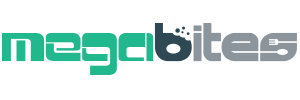
Digitally enabled, connected environments are the new norm. Since the beginning of the pandemic, nearly two-thirds of customer interactions occurring in the digital realm and more businesses transitioning to long-term remote or hybrid operations. In these environments, technology tools allow for innovation.
In the Philippines, multiple industries have embraced hybrid environments as an integral step to digitalization. Hybrid or blended learning is still integral to the education sector, as schools are still transitioning to fully face-to-face classes. During this shift, the connected classroom is fundamental in keeping learning accessible to all by providing tools that enable novel learning methods, like virtual reality. Meanwhile, industrial companies use connected technology for remote asset monitoring, tracking, and maintenance—this is further supported by the Department of Trade and Industry’s (DTI) industrialization strategy, which pursues a renewed industrial policy that is science-, technology- and innovation-driven positioned to transform and to compete in domestic and export markets.
These innovations are not possible without edge functionality and distributed IT environments, and edge and distributed IT cannot function without resilient and reliable energy and connectivity.
“To power edge deployments appropriately, organizations must adopt a mindset shift, treating operations and cloud infrastructure as one unified strategy rather than as separate items,” said Abraham Lim, Secure Power Director at Schneider Electric Philippines. “IT innovation and operational efficiency become symbiotic, measured, and managed together.”
Merging IT and operations requires a data-driven approach
The goal of a unified strategy and the cornerstone of digitally enabled, connected environments is seamless access to IT services, regardless of whether those services reside at the edge, in the cloud, or in a data center. However, distributed IT environments are especially vulnerable to disruptions that threaten technology availability. Environmental disasters, poor connectivity and maintenance delays are just some of the challenges that face distributed IT environments.
Organizations embarking on the mindset shift to unified operations and IT must monitor every facet of their infrastructure and its impact on operations.
“Data-driven analytics play a major role in transitioning towards a data-driven approach, and software tools that provide real-time visibility of IT equipment can aid businesses as they move to a digitally enabled and connected paradigm. Because distributed IT means personnel are not on-site at every edge node or regional data center, remote monitoring is especially valuable,” explained Lim. “Schneider Electric’s vendor agnostic EcoStruxure IT platform delivers visibility, monitoring and management capabilities that IT solution providers can troubleshoot more efficiently, reduce downtime risks, lower maintenance costs and ensure every component of the infrastructure receives reliable power.”
Distributed architectures also represent security risks, both digital and physical. Data protection is at the forefront for most organizations, but remote infrastructure locations can also be subject to tampering or removal by unauthorized people. Security-related monitoring will also be a crucial component of any end-to-end monitoring initiative.
Moreover, connected operations rely on consistent technology availability, and any technological vulnerabilities can lead to operational challenges. However, not every organization has the skillset to implement and maintain remote monitoring software or the manpower to dispatch maintenance personnel—which then requires finding the right partner and developing a reliable ecosystem.
Establishing the right partner ecosystems fill skills gaps and offer guidance
“Not all organizations are equipped to manage every nuance of merging technology and operations, which is why building an ecosystem of partners will be paramount to success,” Lim. “Schneider Electric recently launched the Edge Software & Digital Services Program to help providers quickly establish managed power services while offering flexibility, support, and step-by-step guidance.”
By working with experts, companies gain connections to specific services rendered, as well as a wider breadth of knowledge and access to expertise and innovative technologies. Moreover, leveraging partners to fill in knowledge gaps can help stakeholders build internal alignment that drives change.
Leveraging on technology and partners to speed the transformative journey to a digitally enabled future
As digital customer interactions continue to evolve and proliferate, transforming into digitally enabled, connected operations becomes a question of “when” not “if.” This transformation can confer numerous benefits, including improved efficiencies, reduced risks and enhanced security posture, not to mention more sustainable operations. Organizations can only unlock these benefits when they successfully merge IT and operations into one strategy.
“The journey will be challenging, but investments in the right technology and strong partner relationships can ease the burden and accelerate transformation, unlocking new potential and competitive advantages,” concluded Lim. “At Schneider Electric, we are committed to helping partners along their transition to digital by providing solutions to aid them in establishing and growing their software and digital services business while effectively managing their needs.”
![]()







